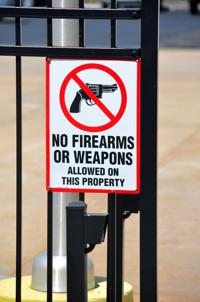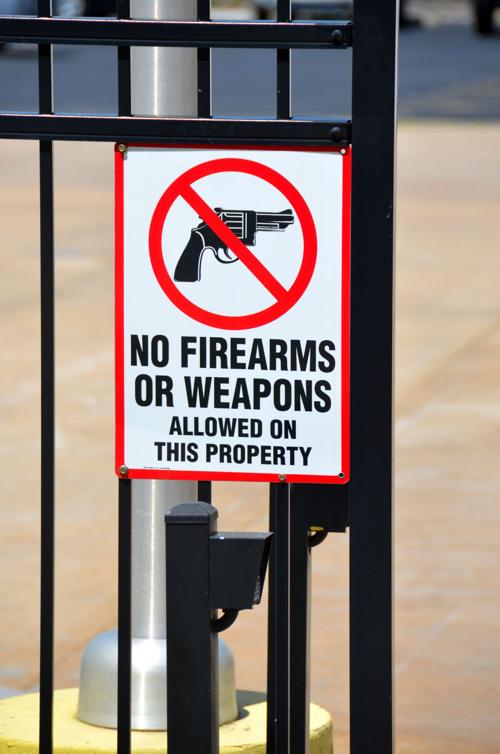PHOENIX — Just because a weapon doesn’t have a bullet in the chamber does not mean it’s “unloaded,” the state Court of Appeals ruled.
The judges rejected arguments by a man arrested in the parking lot of a Green Valley school that the law prohibiting weapons on school grounds is unconstitutional. The attorney for Bo Lucas Johnson said the exception for unloaded weapons is illegally vague, making the law unenforceable.
But appellate Judge Philip Espinosa, writing for the unanimous three-judge panel in Friday’s ruling, said his arguments defy common sense and a logical reading of the law.
According to court records, Johnson and another, unnamed person got into a verbal conflict in September 2014 while on the road in separate cars.
The following day the two encountered each other in a school parking lot. When the other person walked over to Johnson’s truck, Johnson, who was handling a gun, said words to the effect of “driving like that will get you shot.”
The other person reported both the gun and the statement to a police officer assigned to the school. The officer examined the gun, which had bullets in its magazine but none in the firing chamber.
Johnson was convicted in Green Valley Justice Court of a misconduct charge involving weapons, based on a law making it a crime to knowingly possess a deadly weapon on school grounds.
On appeal he pointed out there is an exception when a firearm is not loaded. He argued the law does not have a definition of “loaded,” contending that could be considered as a gun having a bullet in the chamber.
Espinosa said statutes can be overturned if they are unconstitutionally vague. But the judge said that is limited to situations where “it does not give persons of ordinary intelligence a reasonable opportunity to learn what it prohibits and does not provide explicit instruction for those who will apply it.” Espinosa said statutes do not have to be crafted with “absolute precision” but need instead only “convey a definite warning of the proscribed conduct.”
In this case, the judge said, the law is clear.
“That section provides people of ordinary intelligence with sufficient notice and a definite warning that deadly weapons, which (the law) expressly defines to include firearms, are not permitted on school property,” the judge wrote.
He acknowledged lawmakers did not provide a technical definition of when a gun is loaded. But he said that leaves “the commonsense ‘containing ammunition’ as the term’s most logical interpretation.”
“Because this meaning would be apparent to a person of ordinary intelligence, we conclude the phrase ‘not loaded’ is not unconstitutionally vague,” Espinosa wrote.





